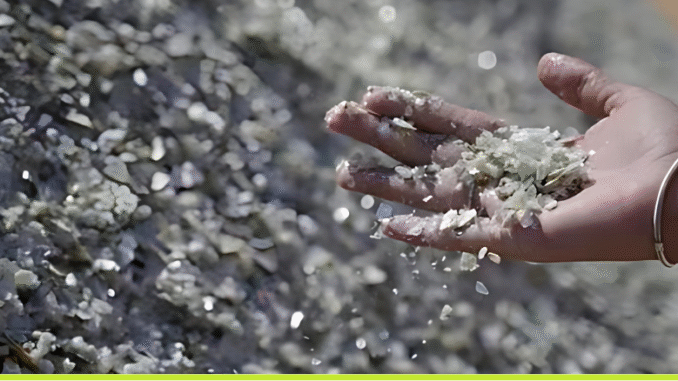
New Delhi – In a landmark decision that underscores India’s commitment to achieving mineral security and reducing import dependency, the Union Cabinet approved a comprehensive ₹1,500 crore incentive scheme on September 2, 2025, under the National Critical Mineral Mission (NCMM). This strategic initiative represents India’s most significant policy intervention in critical mineral recycling, positioning the nation to address supply chain vulnerabilities while building domestic capacity in this crucial sector.
Strategic Response to Geopolitical Mineral Dependencies
The scheme emerges as India’s strategic response to growing geopolitical tensions and supply chain disruptions in critical mineral markets, particularly regarding China’s dominance in rare earth elements and lithium processing. With India importing over 80% of its lithium requirements and facing significant dependencies on Chinese suppliers for various critical minerals, the recycling initiative provides a near-term solution while domestic mining operations and international acquisitions mature.
The National Critical Mineral Mission, launched in January 2025 with a total commitment of ₹34,300 crore over seven years, encompasses all stages of the critical mineral value chain from exploration to processing and recycling. The recycling scheme specifically targets the recovery of critical minerals from secondary sources, addressing the immediate supply needs while primary mining projects undergo their typical gestation periods.
Comprehensive Framework for Recycling Infrastructure Development
The six-year scheme, running from FY 2025-26 to FY 2030-31, establishes a robust framework for developing India’s critical mineral recycling capacity. Eligible feedstock includes e-waste, lithium-ion battery scrap, and specialized materials such as catalytic converters from end-of-life vehicles, creating a circular economy approach to critical mineral supply.
The scheme’s design accommodates both large established recyclers and smaller entities, including start-ups, with one-third of the total allocation specifically reserved for small and new recyclers. This inclusive approach ensures broad-based participation while fostering innovation in recycling technologies and business models.
Structured Incentive Mechanism for Maximum Impact
The scheme provides a sophisticated incentive structure combining capital and operational subsidies to maximize investment attraction and operational efficiency. Participants receive a 20% capital expenditure subsidy on plant, machinery, and equipment for units commencing production within specified timeframes, with reduced benefits for delayed implementations.
Operational subsidies linked to incremental sales over the FY 2025-26 base year will be disbursed in two stages: 40% of eligible operational expenses in the second year and 60% in the fifth year, from FY 2026-27 to FY 2030-31. Incentives are capped at ₹50 crore for large entities and ₹25 crore for smaller ones, ensuring proportionate support while maintaining fiscal discipline.
Transformative Economic and Environmental Impact
The scheme is projected to create substantial economic and environmental benefits, establishing at least 270 kiloton of annual recycling capacity resulting in approximately 40 kiloton of annual critical mineral production. This capacity development is expected to attract around ₹8,000 crore in private investment, demonstrating the scheme’s potential to leverage public funding for significant private sector engagement.
Employment generation represents another crucial benefit, with projections indicating the creation of nearly 70,000 direct and indirect jobs across the recycling value chain. This job creation spans various skill levels and geographic regions, contributing to India’s broader employment objectives while building specialized expertise in critical mineral processing.


